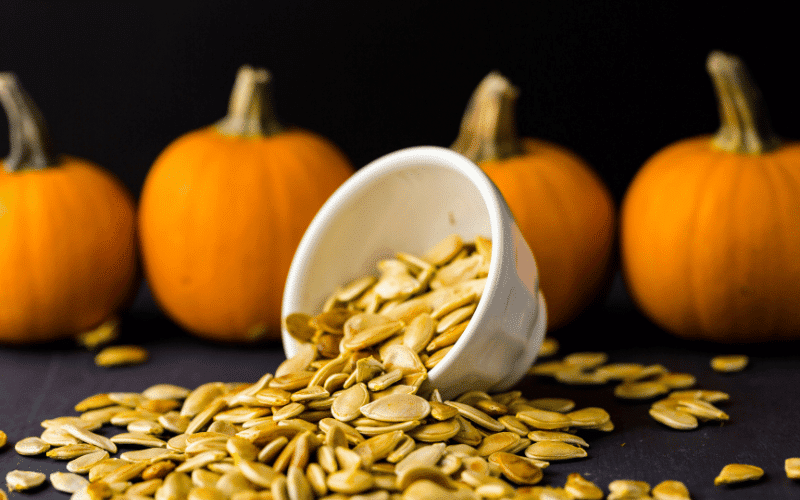11. Zinc-rich Pumpkin Seeds: The Tiny Nutritional Giants

Pumpkin seeds may be small in size, but they are a nutritional force to be reckoned with. High in zinc, a nutrient that plays a crucial role in supporting immune health, these tiny seeds can be a beneficial addition to the diet of those managing Graves’ disease.
Beyond their zinc content, pumpkin seeds are also an excellent source of magnesium, a mineral known for its role in hundreds of metabolic reactions in the body. Furthermore, these seeds are rich in antioxidants, which help to counteract harmful free radicals and reduce inflammation in the body.
Incorporating pumpkin seeds into your diet can be a breeze, thanks to their versatility. They can be sprinkled on salads, mixed into homemade granola, or simply enjoyed as a snack on their own. Whether roasted for a crunchy texture or soaked to make seed milk, the options are endless.
Remember, while pumpkin seeds are nutrient-dense, they’re also high in calories. Therefore, it’s essential to be mindful of portion sizes. As a guideline, a serving size is typically around a small handful or approximately two tablespoons.
Even with their impressive nutrient profile, it’s important to remember that pumpkin seeds are not a cure-all for Graves’ disease. They should be incorporated as part of a balanced, nutrient-rich diet alongside a comprehensive treatment plan for Graves’ disease. (11)